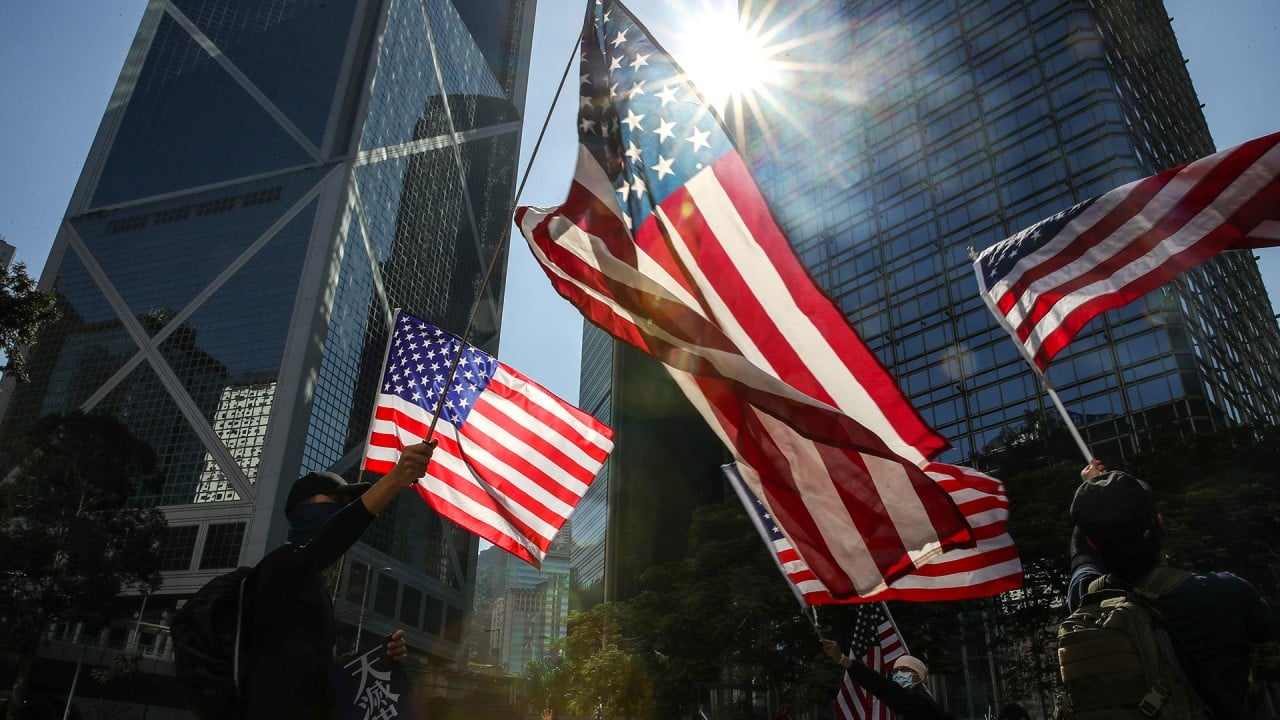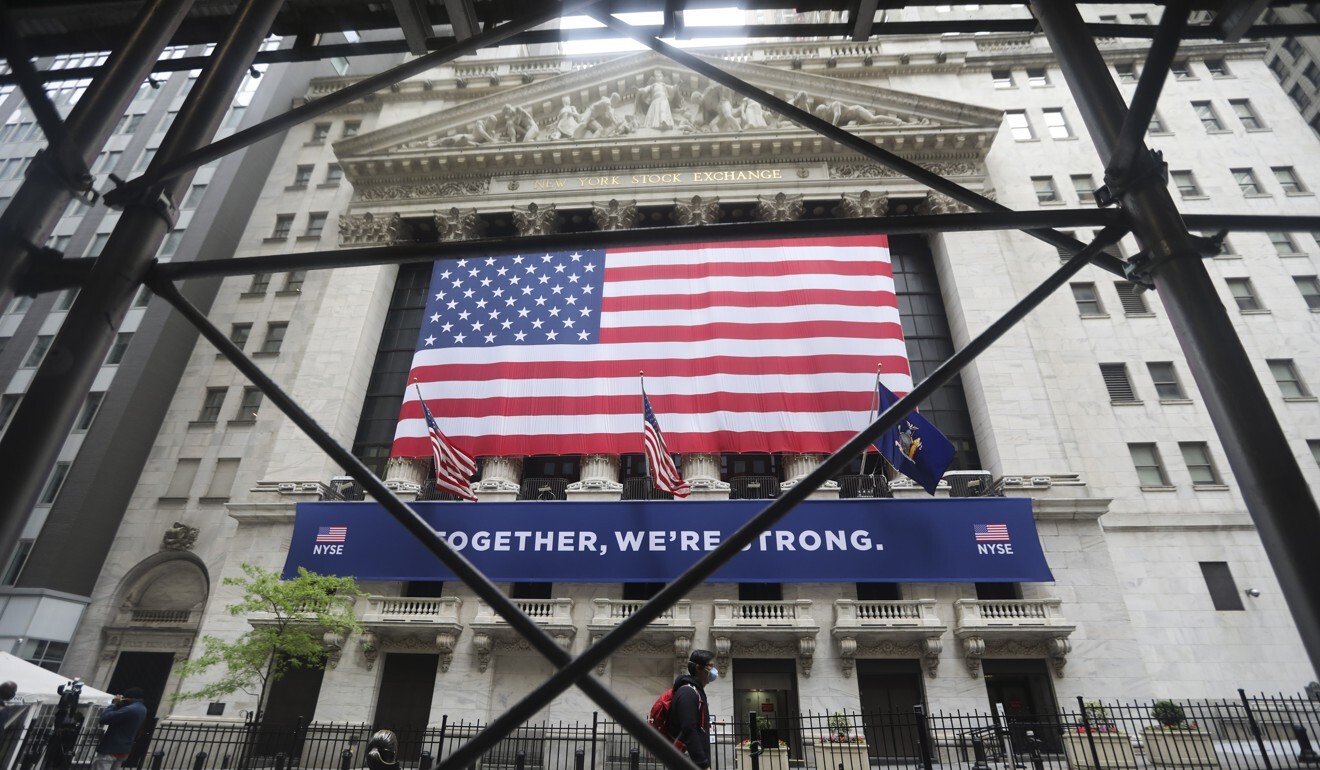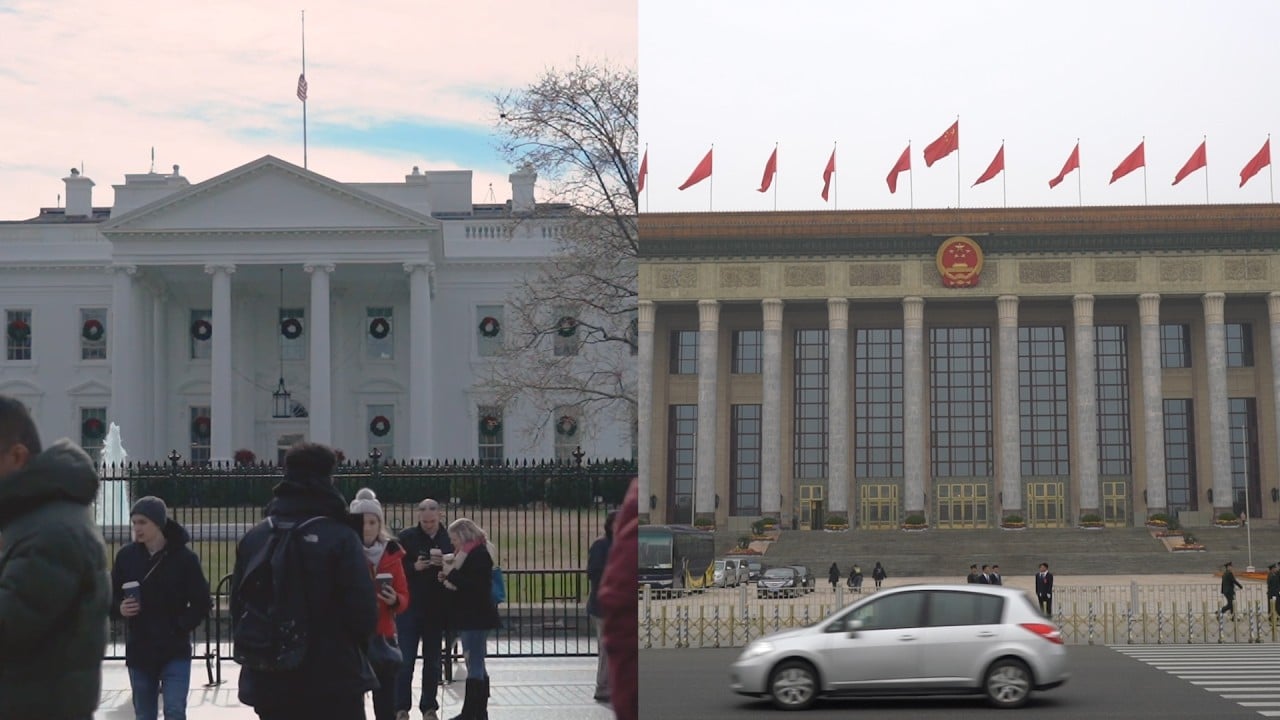
06:21
Hong Kong and the US: how much do they rely on each other economically?

As US-China relations crater and the Trump administration rolls out a blizzard of anti-China measures, global companies are struggling to navigate and make contingency plans for economic and political risks until recently seen as long shots.
“Proposals are no longer considered outlandish and their odds of implementation are rising,” said Henrietta Treyz, economic policy director with Veda Partners, which advises clients on political and economic business risks. “We fully anticipate the US-China relationship will become more strained from here.”
That’s a pretty safe bet. Washington announced sanctions on 33 Chinese entities effective June 5 and threatened a ban on all Chinese passenger flights and on some Chinese students studying in the US.
The administration also claims it is ready to leave the World Health Organisation in the middle of a global pandemic over perceived Chinese bias; threatened to heap massive trade, investment and visa restrictions on Hong Kong after passage of a tough Chinese security law; and spurred fears it could scrap the phase one trade deal altogether.
And that’s only the past few weeks.

06:21
Hong Kong and the US: how much do they rely on each other economically?
“This is a just a breakdown of the trading system between the two countries,” said Jeff Moon, head of Moon Strategies consultancy and formerly with the Office of the US Trade Representative. “It’s symptomatic of a patient that’s sick and getting sicker.”
President Donald Trump is famous for dire threats he doesn’t follow through on. He is also famous for those he does. In this toxic environment, companies are trying to stave off vertigo as they assess and make contingency plans for this shifting list of threats to their bottom line.
“First try and understand exactly what’s happening with tariffs, visa restrictions, export controls, all the nuts and bolts,” said Treyz, a former congressional staffer. “Next you try and layer it to place each event on a scale from one to 10, from least impactful to ‘we’re going to war now’.”
“That’s what we’re working on,” she added.
A further part of many corporate calculations, analysts and companies said, were possible retaliatory moves by China. High on that list include the release of Beijing’s threatened “unreliable entity list” punishing foreign companies deemed harmful to China’s interest; a punitive reduction in US farm purchases; and export restrictions on rare earth elements used in hi-tech products.
“Companies feel buffeted by all of this negative news,” said John Holden, senior China director at the McLarty Associates consultancy. “We really need to take a deep breath here and think how we’re going to get through this.”
Among the long list of risks facing the business community are:
Washington’s finding late last month that Hong Kong was no longer autonomous from China has fuelled more calls to “decouple” the two economies, Veda said.
In pursuing this, actions could include: potential sanctions on individuals and companies seen undermining the city’s civic freedoms and on financial institutions working with them; heightened export controls on Hong Kong-bound trade; tougher visa restrictions; and even a delinking of the Hong Kong and US currencies.
Given the mounting stakes, companies said their best option was to plan for contingencies, diversify markets and suppliers and react quickly if walloped.
“There’s nothing like being prepared and doing your war games,” said Michael Alkire, president of health care equipment provider Premier.

As the coronavirus hit, Alkire said, Fruit of the Loom was tapped to secure elastic for masks made by Ford, Tito’s Vodka shifted production from booze to hand sanitiser, and the Dyson vacuum company focused on ventilators. “When there are curveballs you don’t expect, you need people you can brainstorm with,” he added.
Others cited the need to focus on what could be controlled, separating genuine risks from political noise.
Women’s fashion retailer Top It Off Accessories said it managed to avoid serious disruptions as Trump cranked up the trade war by working closely with long-standing Chinese suppliers.
“If there’s a hiccup, we just address it,” said co-founder Karena Rasser. “If he comes out with more duties, taxes and things of that nature, what’s done is done. It’s not like we have the political clout to change anything.”
Chinese companies trying to operate in the world’s largest consumer market face particular challenges.
Facing growing suspicions of Chinese espionage and intellectual property theft, mainland companies struggle to navigate a high-stakes world of US acronyms that lack transparency involving vaguely worded rules that keep changing.
These include: the Foreign Agents Registration Act (Fara) requiring strict reporting of even vague ties to Beijing; the Committee on Foreign Investment in the United States (Cfius) reviewing all transactions deemed “strategic”; and the secretive Foreign Intelligence Surveillance Court (Fisa) investigating suspected terrorists and spies.
And that’s before companies even focus on the market, competitors and their business strategy.
“The standard advice has been to ‘lawyer up, public-relations up and lobby up’,” said an adviser to Chinese companies who declined to be identified given political sensitivities. “That’s no longer enough. Under this administration, the rules are changing rapidly and continue to change.”
The adviser said that in this environment he assumed his phone may be tapped under Fisa authority for helping Chinese firms, that even his non-technology clients were facing excruciating Cfius reviews and that almost any mainland company could be labelled a state-owned company in a Fara review.
“This is an existential challenge for Chinese companies trying to trade in the US,” he said. “I’m afraid Chinese companies will continue to be used as fodder in a political war. They’re not in control of own destiny and it’s very hard for them to even protest their innocence.”
Experts see little prospect of more stable business conditions any time soon.
An increasingly defensive US president – facing criticism over his erratic leadership during recent health and economic crises and civil unrest crises after the killings of African-Americans by police – sees tough China policies as a way to appear strong and deflect attention.
Trump’s declining poll numbers in an election year and criticism by Democratic opponent Joe Biden that he’s been soft on Beijing add pressure for more anti-China policies.
Two-thirds of Americans held an unfavourable view of China in a Pew Research Center April survey, up from 47 per cent in 2017, while most said they lacked confidence in President Xi Jinping to do the right thing globally, up sharply from last year.
Beijing, meanwhile, faces its own pressure to look strong and punch back. A sharp economic downturn and rising unemployment risk political instability even as its early handling of Covid-19 draw global criticism.

02:06
Coronavirus pandemic creates ‘new Cold War’ as US-China relations sink to lowest point in decades
China’s political space for compromise, even if it wanted to, has narrowed as Chinese nationalism expands and “Wolf Warrior” diplomats bait the Trump administration.
Many US companies operating in China initially bet as the trade war ramped up that they could weather the storm and preserve access to lucrative markets, analysts said. That has become less sure as bilateral relations hit new lows.
Often, they devised strategies reliant on Hong Kong as a base free of Beijing’s political, legal and computer network interference, strategies that look more questionable as China’s grip on the city tightens, according to Treyz.
An American Chamber of Commerce in China survey in April found that 24 per cent of member companies planned to shift production out of China, double year-earlier levels.
“The situation with Hong Kong is a very big deal,” she added.